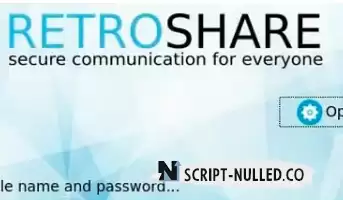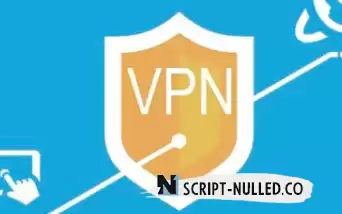Anonymity on the Web is a burning topic for discussion. We use many services every day that track our IP address. In fact, this is our real physical address, which is easy to establish. Imagine that you are walking down the street with your home address printed on your shirt. The same thing happens when you browse the internet without masking your location. Not everyone likes it. Read the best article on how to stay anonymous online
Why is this necessary?
Online anonymity means all the ways to go unnoticed on the Internet. The reasons can be very different. This includes the desire to protect oneself from illegal actions, and the implementation of illegal activities by a user seeking anonymity. But often the need for privacy is dictated by a person's desire to have a protected personal space.
A bit of history
The issue of online anonymity arose in the late 1980s. Initially, aliases and unique usernames were used for this purpose. In the early 1990s, the World Wide Web appeared, and online privacy technologies began to develop at a record pace/ There are remailers that encrypt e-mail messages. Software methods have been developed that are still used today: onion routing, SOCKS network protocol, proxy servers.
How to ensure anonymity on the web?
To ensure confidentiality, software techniques are used — an anonymous Internet working on a global network. Anonymizers are also relevant — technical developments that hide user data and actions.
The main list:
Proxy servers that can hide the recipient of the request or mask user data;
VPN services that hide the actual IP address and offer to choose a virtual location;
An I2P network operating over the World Wide Web and using encryption to ensure the anonymity of the server;
Tor software that anonymizes traffic using onion routing.
Read more about these and other methods in our article.
How do I get into the Darknet?
The Darknet is a subsection of the Internet that is not indexed by conventional search engines. Access to the resource is possible only with the help of specialized software.
This is because the darknet requires the browser to use certain security and privacy settings that can interact with a network of anonymous websites on their anonymous hosts.
TOR browser
A bit of history. Initially, Tor was a project of the U.S. Naval Research Laboratory. The key technology of Onion Routing, which is used in it, was patented by the US Navy in 1998. Today, the product is managed by the non-profit educational organization Tor Project.
Tor protects personal privacy and the ability to conduct confidential communication. jаvascript and cookies are disabled in Tor by default. The browser directs Internet traffic through a free international volunteer network consisting of more than 5,000 repeaters. Each message transmission is "wrapped" in several levels of encryption, and each level is "unfolded" (decrypted) like a bow using a relay in a circuit. Hence the name of the technology — "onion routing".

The VPN client is a special program that helps you use the virtual network itself comfortably and profitably
How does it work?
To understand how Tor protects you, it is important to understand how it works.
All Tor users distribute a copy of their public key and IP address using an integrated peer-to-peer network;
The Tor anonymity network uses a system of repeaters, also called nodes. The more nodes that are running, the more reliable the Tor network is;
The only piece of data that is decrypted during transmission is the forwarding IP address;
The received data contains the IP address of the "exit node" - the last link in the encryption chain.
Although Tor is a great anonymity tool, the exit node can be compromised.
I2P
The Invisible Internet Project (I2P) is a decentralized anonymous network built using Java on principles similar to Tor. From the very beginning, it was created as an autonomous Internet.
In other words, I2P is the Internet on the Internet. Once connected, you can send emails, browse websites, use blogging and forum software, host websites, take advantage of decentralized file storage, participate in real-time anonymous chat, and more.
How to use I2P?
The official I2P website is aimed at technical specialists and inexperienced users may have difficulties with installation. Below is a brief instruction on how to work with I2P.
How do I set up and connect?
Download and install Java. I2P is written in the Java programming language, so you will need to install this software platform to run it. It is quite possible that it is already installed, but if not, then download the latest version and install it. If you are not sure, skip this step and come back if I2P refuses to work.
Customization. Download, install and run I2P. When you start I2P, a console window will open. A browser window will also open on the router's console page to inform you that you have successfully connected to the network. You may have to wait a few minutes for the program to find the peers and connect the tunnels to them. After that, the router console will show that you have successfully connected.
Technically, this is the best option if you want to access the DarkNet, despite the fact that it is not as popular as Tor. This is a good option for free, fast and anonymous access to the network.
RetroShare
RetroShare is a next—generation peer-to-peer file sharing network. Unlike classic peer-to-peer software, RetroShare connects only to trusted friends, not just anyone. This method of connection is called a "friend—to-friend" network, or friend-to-friend (F2F).
The problem with existing file sharing networks is that you can't control who you share information with. Many people do not want to share data with everyone, but are ready to send it to trusted persons.

The VPN client is a special program that helps you use the virtual network itself comfortably and profitably
RetroShare is a platform that establishes encrypted connections between authenticated friends. This connection is used for various communication and file sharing services. It does not depend on any corporate system or central servers. All data is sent only to friends, and in some cases it is shared with their friends, which makes RetroShare a decentralized social network designed for people. Encrypted communication ensures that all transmitted information is known only to you and your friends.
Services in RetroShare:
Private chat with friends
Private or public lobbies that allow you to chat with friends and friends of friends.
Messages to friends.
Forums.
Voice over IP.
Community.
RetroShare is built entirely without any corporate or government sponsors. It does not depend on financing, so it cannot be put under pressure.
Freenet
Freenet allows you to effectively distribute information over the Internet without fear of censorship. The resource is completely decentralized: there is no object controlling or essential to Freenet, so there is no central point that would destroy the entire system in the event of an attack. It is difficult to delete individual pieces of information from Freenet because it is difficult to determine which computer is storing any particular segment.
An attempt to determine where information is stored leads to the fact that this information is distributed to other nodes within the system. Both authors and readers of the information can remain anonymous if they wish. Freenet also uses intelligent routing and caching, which means it learns to route requests more efficiently.
Freenet is a peer-to-peer encrypted version-controlled data store that aims to provide anonymity for both publishers and readers. Launched in 1999, Freenet is the oldest of the Big Four anonymous networks, along with Tor, I2P and GNUnet (GNUnet is based on similar concepts). Despite having fewer users compared to Tor and I2P, it is still the largest network of its kind.
An important recent development that very few other networks have is the darknet: by connecting only to people they trust, users can significantly reduce their vulnerability and, nevertheless, still connect to the global network through friends of their friends, etc. This allows people to use Freenet even in places where the software may be illegal, and it is very difficult for governments to block it, and it does not rely on tunneling into the "free world".
GNUnet
GNUnet is a peer—to-peer infrastructure with a focus on security. All messages on the network are confidential and authenticated. The main goal of GNUnet is to create a reliable free software framework for a global network that ensures security and privacy.
GNUnet started with the idea of anonymous file sharing, protected from censorship, but now it includes other applications: the GNU naming system, a decentralized public key infrastructure that preserves confidentiality. GNUnet is mostly written in C, but the gnunet-java subsystem provides an API for developing extensions in Java. Similar work is underway for Rust.

The VPN client is a special program that helps you use the virtual network itself comfortably and profitably
VPN and online anonymity
A VPN, or virtual private network, is an easy way to connect two locations as if they were using the same local network. Once upon a time, this technology was used only by large organizations and enterprises. It is now available to ordinary users — to protect privacy, increase security and access geo-blocked services such as Netflix.
Let's look at the reasons why you would want to use a VPN and why a paid service is always the best option.
What is a VPN and why is it so popular?
A VPN is a secure tunnel between two parts of a network. Imagine a tunnel running under a mountain, where the mountain is the internet. You can climb the mountain to reach your destination, but in this case your stay will be known to everyone. You can use the tunnel and hide your movements. This is a VPN.
One of the main reasons for using a VPN is privacy and security. VPN uses encryption to protect your data during transmission. Anyone monitoring your connection will try to figure out what you are doing online when you use a VPN. Encryption is an important privacy tool for all Internet users.
You can use a VPN connection for a number of reasons:
confidentiality;
safety;
logging in to remote services;
access to your office's intranet from an external location.
Viewing geographically blocked content from a limited location is also an advantage of this method.
How does a VPN work?
Without a VPN, your data is transferred between your computer and the servers of any website you visit. Your Internet service provider, government, and other organizations can monitor and analyze the data you use, and they may be vulnerable to other Internet attacks.
VPN protects your data when transferring from your computer to the VPN server. The VPN provider encrypts your data, making sure that prying eyes cannot intercept or read data coming from your PC, laptop, smartphone or other device.
A VPN connection protects your data only up to the VPN server. As soon as your data leaves the VPN server, it returns to the "wild". The website server will not know the source IP address and will not track you in one place. However, if you connect to your Facebook account while using a VPN, everyone knows it's your account anyway.
Is it safe to use a VPN?
Using a VPN is safe. But the legality of using a VPN depends on your location. There are several countries around the world where the use of VPNs for individuals is prohibited. Tip: Always check local laws before using a VPN in a new country.
Another aspect of VPN security is understanding how secure your data is. A VPN will protect your privacy to a certain extent. Facebook will still know that it's you if you log into your Facebook account while using a VPN. It will just seem that you are in a different place than usual, and because of this you may face additional security checks.
If your Google account remains logged in, Google can still link your searches to your profile. Yes, a VPN protects your privacy. But only if you are trying to use the Internet privately.
To ensure your security and privacy, we recommend that you always use a VPN for PC
Is a free VPN safe?
There are two types of VPN: free and paid. And if you have the opportunity, pay, and that's why. A free VPN monetizes the service using alternative methods. At best, this is an ad display. At worst, collecting and selling your data, saving on important security measures such as encryption level, VPN protocol type, number of available servers and speed limits, and many others.
For general Internet use, a VPN is fast and easy to use, while providing a high degree of privacy. We strongly believe that by default, people should use VPNs all the time to prevent impartial surveillance by the likes of the NSA. It is also ideal for P2P downloads.

The VPN client is a special program that helps you use the virtual network itself comfortably and profitably
Is online anonymity still possible?
Experts say that 100% anonymity on the web is a myth, and the level of confidentiality is determined by the resources and qualifications of specialists "on the other end of the wire." But most users may well disguise their presence on the Internet. Remember, if you want to truly stay safe and enjoy anonymous browsing on the internet, you should definitely link your anonymous web browser to a reliable VPN that takes care of your privacy.
The reality and myths of anonymity on the web
Online anonymity is a complex concept, intertwined with myths and reality. Many people are looking for ways to hide their online activity, but the reality is that complete anonymity is extremely difficult to achieve.
There is a myth that using tools like VPN, Tor or anonymous browsers guarantees absolute privacy. But this is not the case. All actions on the Internet, to some extent, leave traces, and even with the use of anonymous networks, there is a risk of information leakage or identification.
The reality of anonymity on the web depends on many factors, including technology, the level of data protection and the threats faced by the user. Privacy protection requires a comprehensive approach combining technical means, precaution and conscious online behavior.
It is important to understand that even when using anonymizing technologies, there is a possibility of their imperfections or vulnerabilities. To achieve optimal protection, it is necessary to carefully assess risks, take appropriate precautions and consciously manage your online behavior.
The most popular questions about hidden network usage
What is a Darknet and how to get there?
The easiest way to access the Dark Net is to use the Tor Browser. This is a modified Mozilla Firefox browser that uses Torbutton, TorLauncher, NoScript and HTTPS-Everywhere technologies. Step-by-step algorithm:
Go to the official Tor Project. Download Tor Browser only from this site. Complete the installation after successful download
After installation, open the Tor Browser. If the browser informs you about the update, install it immediately.
A welcome message for the New to Tor browser will appear. It contains some useful tips — be sure to read them if you are working with this browser for the first time.
Important tip: do not change the security settings of the Tor Browser if you are not sure of your actions. This way you can inadvertently expose yourself, negating the effect of the alternative Internet network.
What is a TOR browser?
Tor Browser is a powerful and easy—to-use software that allows you to keep your online life private. Available for Mac OS X, Windows and Linux. If you need to interact with the outside world as anonymously as possible, then Tor is the perfect way. You can add another layer of anonymity by connecting to Tor via a VPN service.
Offline Internet: what is it?
The offline Internet is a group of IP prefixes with a well—defined external routing policy. For several autonomous systems to interact, each of them must have a unique identifier. The numbers of autonomous systems can be public or private.
How can I remain anonymous on the Internet?
Remember that such a popular tool as social networks is a source of a large amount of user data. They are easy to extract accounts and published information. To avoid this, use unique logins in and do not post the same profile photos. Regularly clear your cache, cookies, and browsing history. But remember that the degree of anonymity is limited by your IP address, which allows you to identify the user, his actions and location.

 Spain
Spain
 Portugal
Portugal



